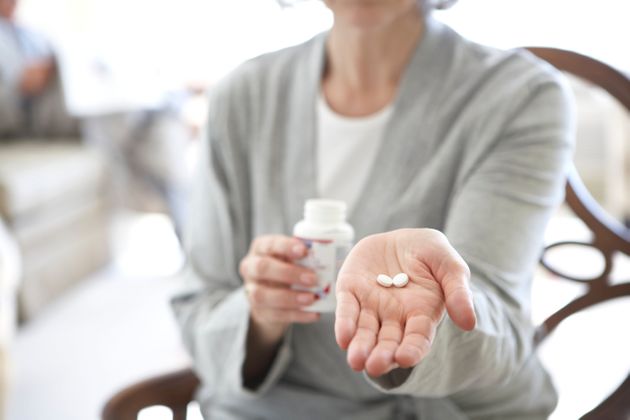B.C.’s provincial health officer has issued a public health order to increase the number of health professionals authorized to assist people in the province at risk of overdosing.
In a press release issued from the Ministry of Mental Health and Addictions, registered nurses in B.C. will now be able to prescribe safer options as alternatives to toxic street drugs.
Dr. Bonnie Henry’s order comes as B.C. experiences a “staggering” number of monthly overdose deaths since the start of the COVID-19 pandemic. Health officials point to measures like the Canada-U.S. border closing as putting more illicit toxic drugs on the streets.
“We know the pandemic has only made the street drug supply in B.C. more toxic than ever, putting people who use drugs at extremely high risk for overdose,” said Henry in a statement.
“Giving physicians and nurse practitioners the ability to prescribe safer pharmaceutical alternatives has been critical to saving lives and linking more people to treatment and other health and social services. I am issuing a provincial health officer order to expand the health professionals who are able to provide safer, accessible alternatives to the toxic street drug supply and help more people find their pathway to hope.”
The aim of the new public health order is to help separate more people from the “poisoned street drug supply,” leading to saving lives while providing opportunities for ongoing care, said the B.C. Government.
Henry said new nursing standards will be introduced as part of the new health order, along with training, education and access to expert consultation.
“Before the COVID-19 pandemic began, B.C. was making progress and overdose deaths were coming down for the first time since 2012,” said Judy Darcy, Minister of Mental Health and Addictions. “We’re seeing these tragic spikes in deaths across Canada, but I’m proud that we’re the only government responding across the full continuum of care by providing more overdose prevention services and outreach teams, doubling youth treatment beds, increasing adult beds and counselling services. And today, we’re announcing a significant expansion of access to safer prescription alternatives to the toxic drug supply. Each life lost to overdose is a tragedy and we are taking every preventative measure possible to save more lives and connect more people to treatment and supportive services.”
More than 5,000 people have fatally overdosed in B.C. since the province declared a public health emergency in 2016, but fatalities were declining for the first time since 2012 before the COVID-19 pandemic.
On the other hand, the BC Centre for Disease Control (BCCDC) estimates that nearly 6,000 deaths have been averted since April 2016 due to lifesaving supports put in place.
Only doctors and nurse practitioners have been able to prescribe drugs, including substitute medications for illicit-drug users as an alternative to potentially deadly substances on the street.
The latest data from the BC Coroners Service from July shows there were 175 suspected illicit drug toxicity deaths – the second straight record-setting month in regards to the number of overdose deaths.
The ministries of Health and Mental Health and Addictions will expand that access by working with Henry’s office to increase the types of medications that can be prescribed and dispensed by doctors, pharmacists and nurses.
Henry has advocated for access to a safer supply of drugs and has called on the federal government to decriminalize possession of small amounts of drugs for personal use.
Canada’s chief public health officer, Dr. Theresa Tam, has also called for access to safer prescription drugs.
Prime Minister Justin Trudeau recently agreed a safer supply is key during the dual public emergencies of a pandemic and the overdose crisis, but he has maintained his stance against decriminalization.
Guy Felicella, peer clinical adviser with the Overdose Emergency Response Centre and the BC Centre on Substance Use, said Henry’s order is a positive step toward building a system of care that includes harm reduction treatment and recovery.
In Victoria, Corey Ranger, a nurse, said he was glad to hear the news.
“It’s fantastic. It’s something that we’ve needed for a long time. It’s something that’s I’ve personally been arguing for quite some time,” he said.
When it comes to accessibility, that’s been one of the biggest barriers for people, trying to get onto safe supply.”
Fred Cameron, operations manager with SOLID Outreach Society, also agreed the change will help.
“Definitely a step in the right direction. One of the biggest problems faced by the community is gaining access. We don’t have enough family doctors to go around, and people have been having trouble getting services,” Cameron said.
And Grant McKenzie, Our Place Society director of communications, said for those who’ve hit rock bottom this is good news.
“I think it’s a really good program for people who are out in the cold. Especially for those who’ve been seeing death all around them,” he said.
He added that pharmaceutical heroin isn’t covered.
“For those people who are in the height of their addiction, who are still really fighting through the trauma, the chances are they wouldn’t take people up on this. Simply because it’s not prescription heroin,” he said.
The new nursing standards will include training and education.
































